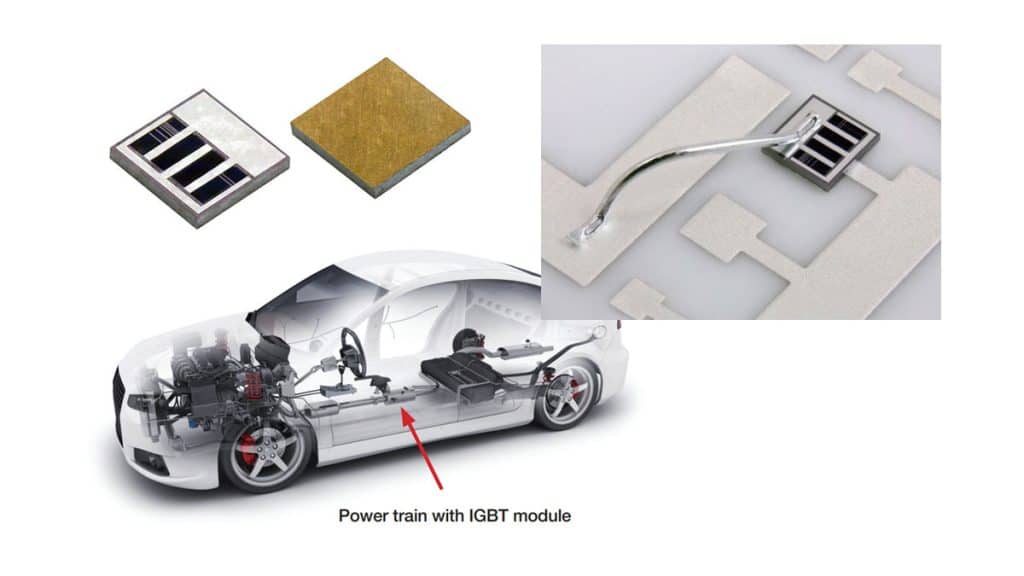Vishay article explains benefits of thin film, high power, back-contact resistors (IGBR).
The main features of the IGBR resistor family are low inductance, small size, wire bond capability, and matching power module component attachment methods. They are available with miniature chip case sizes ranging from 0202 to 0808 that offer a miniature option for high power applications.
The top termination on the thin film resistors IGBR consists of Al with a 2.5 µm minimum thickness, which is suitable for heavy gage aluminum wire bonding. Because the IGBR is a back-contact resistor, it only requires one wire bond for a chip and wire assembly. The IGBR can bond with a wire that is up to 6 mils in diameter. Due to the single wire bond, the part maintains extremely low inductance. The length of the wire determines the amount of inductance in the module, so the shorter the wire the lower the inductance.
The IGBR is the perfect part for saving space in power modules. For comparison, the IGBRD in the 0808 case size can handle up to 4 W, while a thin film surface-mount chip in the 2512 case size can handle up to 6 W, and a thick film chip resistor on AlN in the 2512 case size can handle 3.5 W.
The wire bond process and attachment methods match SiC assembly processes for gate resistors in power modules.
The IGBR resistors can be used in the following applications: a gate resistor for IGBT modules and SiC MOSFET power modules, current limiting in LED lighting, alternative energy, and high power applications.
Features
- Noise reduction or elimination when used in
SiC power modules - Sintering, soldering, and epoxy attachment
options - Wire bondable
- Small size, high power density
- High power rating
- Single wire bond assembly
- Moisture resistant
- Case size: 0202 to 0808
Applications
- Gate resistor for SiC based power modules
- Gate resistor for IGBT based power converters
- Current limiting for LED lighting applications
- High power applications
- Alternative energy
- Hybrid assemblies
Why are gate resistors required in a power module?
The resistor:
- Affects switching loss and prevents gate ringing
- Limits the noise in the gate drive path
- Limits parasitic inductances and capacitances
- Limits current that charges and discharges the gate
- Limits peak gate current to protect the driver output stage
- Dissipates the power in the gate loop
- Influences the switching speed by limiting current
